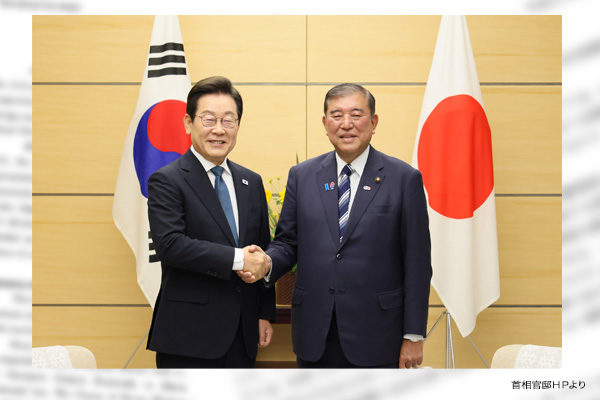South Korean President Lee Jae Myung’s visit to Japan and the United States in late August demonstrated the true essence of his pragmatic diplomacy giving priority to national interests.
The U.S. government had initially been cold to Lee, elected in a snap election in June following the impeachment of President Yoon Suk Yeol. The Trump administration had been influenced by a conspiracy theory spread by far-right South Koreans that Yoon was impeached for trying to expose a large-scale fraudulent election involving Chinese intervention. In his social media post three hours before the U.S.-South Korea summit, President Donald Trump said that a purge or revolution was taking place in South Korea. The post appeared to support the conspiracy theory.
At the outset of the summit meeting, however, Trump offered congratulations on Lee’s election as president. By then, Trump has judged the conspiracy theory is not true. In response to a reporter’s question, Trump clarified that he had had a misunderstanding. As the South Korean side made behind-the-scenes efforts to clear up the misunderstanding, Trump accepted the efforts.
Successful Trump appeasement strategy
Lee thoroughly investigated Trump’s tastes and personality before the meeting. A custom-made thick pen Lee brought with him for signing the name book was Trump’s favorite. As Trump wanted it, Lee gave it as a gift to Trump.
In his first greeting at the summit, Lee praised the golden decorations in the White House, saying that America was entering a golden age under Trump as symbolized by soaring U.S. stock prices. Lee found in advance that Trump favors the golden color.
Lee also praised Trump for trying to end wars and make peace and recommended the U.S. president to meet with North Korean leader Kim Jong Un. “I would like to ask for your role in establishing peace on the Korean Peninsula,” Lee said. Lee made the remarks after finding that Trump calls himself a peacemaker and aims to win the Nobel Peace Prize and that Trump is willing to meet with Kim Jong Un. Without a manuscript, Lee made these remarks using short and concise expressions and humors, winning Trump’s heart.
Avoiding anti-Japan remarks on history issues
Before going to the U.S., Lee visited Japan and declared he would abide by former South Korean governments’ agreements with Japan on wartime Korean comfort women and workers issues. Such declaration was surprising, given his past extreme anti-Japan posture. Lee demonstrated such attitude apparently in order to appease Trump.
The U.S. has been concerned that confrontation between Japan and South Korea over history issues would go against U.S. national interests in East Asia. During his first term in office, Trump had a honeymoon relationship with then Japanese Prime Minister Shinzo Abe and accepted Japan’s explanation that the South Korean side was making unreasonable points. Getting aware of the fact, Lee visited Japan prior to the U.S. to dispel U.S. concerns.
Without making an apology that Lee wanted over history issues, Japanese Prime Minister Shigeru Ishiba maintained his predecessor Fumio Kishida’s policy of inheriting positions of earlier Japanese governments on historical perceptions, including the 1998 joint declaration between then Japanese Prime Minister Keizo Obuchi and then South Korean President Kim Dae Jung. Kishida came up with the policy when he met with then South Korean President Yoon during his visit to Japan in 2023.
I was relieved by this Ishiba attitude. If Ishiba remains prime minister and visits South Korea to attend an Asia-Pacific Economic Cooperation summit in October, however, he may use the word “apology.” We need to be vigilant to such possibility.
Tsutomu Nishioka is a senior fellow and a Planning Committee member at the Japan Institute for National Fundamentals and a specially-appointed professor at Reitaku University. He covers South and North Koreas.


